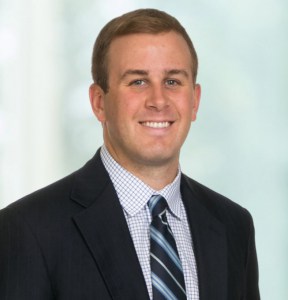Wealthtender is a trusted, independent financial directory and educational resource governed by our strict Editorial Policy, Integrity Standards, and Terms of Use. While we receive compensation from featured professionals (a natural conflict of interest), we always operate with integrity and transparency to earn your trust. Wealthtender is not a client of these providers. ➡️ Find a Local Advisor | 🎯 Find a Specialist Advisor

Ask an Advisor: I’m graduating from dental school. What financial steps should I take next? – Anonymous

As a soon-to-be dental school graduate or recent graduate, you will surely experience plenty of excitement as you look forward to starting your career. But before the celebrations get too wild, it’s essential to plan for your financial future – making wise investments and setting goals now will ensure that your money serves all your life needs.
As an experienced financial advisor for dentists, I’m happy to share smart financial steps you should consider taking upon graduation, along with insights I’ve gathered from a few trusted experts.
Let’s dive in.
Obtain Own-Occupation Long-Term Disability Insurance
Own-occupation long-term disability insurance is a crucial safety net for many hardworking dentists who may be unable to work due to an illness or injury. The own-occupation feature of a disability policy ensures you still are paid if you can’t practice dentistry but could work another job. Without this rider, some policies may only pay for some time before they require you to find additional work.
Even if you have a backup plan such as emergency savings, this form of insurance can help protect your other assets while supplementing income during the period of disability. Research your options thoroughly before selecting a plan; ensuring coverage appropriate for your need and budget is wise. Obtain your own-occupation long-term disability insurance, and take comfort knowing you’re prepared for whatever life has in store.
A trusted resource for this is Jim Kachmar of Doctor’s Disability Specialists. We reached out to Jim for his input.
Jim Kachmar says, “Buying disability insurance that can grow with you as you grow throughout your career is very important. Getting the right plan in place when you are young and healthy might be one of the best financial decisions you make in your life.”
We completely agree with Jim and recommend that you make this a top priority.

Hire an Attorney To Review Your Employment Agreement
Knowing your rights and responsibilities is increasingly difficult in an ever-changing labor law and regulation landscape. Hiring an attorney familiar with employment rules and regulations is essential to review your agreement. An experienced lawyer can advise you on the legality and fairness of specific clauses, enabling you to take charge as both an employee and employer. Working with professionals ensures all expectations are clear. Only sign something once you’ve reviewed it with a trained legal eye!
We contacted another trusted resource and dental-specific attorney, Robert Montgomery, III, Esq. of Robert H. Montgomery, III, Esquire, P.C., for his input.
Robert Montgomery says, “I think that it’s important for new dentists to realize the significance and potential impact that their associate agreements can have on their career. Very few new dentists have entered into any “serious” contracts up until this point of their lives as most of the contracts they have signed have been fairly ‘standard.’ For example, they may have signed a lease for an apartment or a car that has been vetted by government regulatory agencies or are under the purview of laws that protect consumers.
“However, when it comes to dental associate agreements there is no such thing as a ‘standard’ agreement and, as such, the terms, conditions, and covenants in these agreements can vary wildly and have the potential to impact their ability to practice where and when they choose. For this reason, young dentists need to recognize that a switch has been flipped and approach the agreements that they are being asked to sign with seriousness and skepticism. The best way for them to do that is to seek the advice of experienced legal counsel to help them understand what they are agreeing to and how these agreements can impact their careers and ability to earn a livelihood.”
Plan for Student Loan Repayment
Student loan debt burdens many dental graduates. Making a manageable repayment plan is essential to the financial success of dentists when seeking to achieve their financial goals. Dental students and recent graduates should consider creating a student loan repayment plan early on to gain control of their debt and have peace of mind knowing they have an actionable plan in place.
We contacted another trusted resource and fellow student loan expert, Andrew Paulson, CSLP® of Student Loan Advice, for his input.
Andrew Paulson says, “For a graduating dentist going straight into practice or residency it is a great idea to make a plan to get a jump on your student loans. New dentists on average graduate with more than $300,000 in student debt. It can be easy to get overwhelmed when you are deciding on the best repayment plan, forgiveness option, or if you should privately refinance your student loans.
“Tackling this mini mortgage should start by assessing these two details: student debt to income ratio and the type of employment they are seeking. Most dentists will work in private practice and dental service organizations or DSOs. Common loan repayment options for them are to refinance their student loans or pursue a federal loan forgiveness program over a 20-25 year period in an income-driven (IDR) plan. If the dentist expects to remain in an associate role or will never make an annual salary that is one-half of what they owe (income of $150k in this case) they should consider the federal loan forgiveness program. If they plan on buying into a practice or will make income level with their student debt or even above it, they should look into private refinancing.
“Indebted dentists who decide to work in a nonprofit or public health can look into the public service loan forgiveness program (PSLF). It is similar to the 20-25 year plan as you need to be on an income-based program. But, it only takes 10 years to complete and after a decade of public service the borrower’s loans are discharged tax-free. PSLF should be pursued anytime your debt-to-income ratio is .75:1 or greater. An example of this ratio would be $300k debt with $400k income.”
For associate dentists hoping to become practice owners, paying off your student loan debt too quickly may be the wrong decision. In many cases, your earning potential is much higher as a practice owner than as an associate dentist. Therefore, it’s wise to prioritize how quickly you can become a practice owner rather than become debt free.
File a Tax Return in Your D4 Year
If you’re a graduating dental student with significant student loan debt, you’ll likely want to utilize an income-driven repayment plan for your federal student loans. These plans can lower your monthly payments based on income and family size.
If you don’t file a tax return showing low income (or no income) for the 2022 tax year, your payment calculation will be based on your pay stub when payments resume! For an associate dentist earning $180,000 annualized in their first job, your payment could be more than $1,350 per month.
If you had $0 of income in 2022 and filed a tax return, you’ll get to skip these payments. The $0 payments would still count towards forgiveness programs, and some income-driven plans have interest subsidies.
Consider hiring a CSLP® to help with your student loan repayment plan.
Plan for Your Career & Practice Ownership
Taking the initiative to plan your dentistry career can set you up for success and ownership in the long run. Whether you are an associate dentist or looking to gain ownership in the future, having a plan is critical.
Your plan could involve researching which location would be best for you down the line, studying trends and understanding relevant market dynamics, and exploring what resources are available to help finance and launch your own dental practice.
Taking action to make your dream of owning a dental practice come true is when the actual planning begins, so having steps in place before starting can give you the best shot at owning and succeeding with your very own dentist business.
We contacted another trusted resource and Dental Practice Mergers and Acquisitions expert, Caleb Gussner, MBA of DuckettLadd, for his input.
Caleb Gussner says, “Our best advice is to start with the end in mind and work backward. In order to maximize the outcome of your financial plan, you must ensure your financial plan is in alignment with your career aspirations. Is practice ownership in your future, or would you rather work as an employee? If practice ownership is in the cards, what kind? Where? Doing what?
“If you’d rather be an employee, which employer matches my value systems and will allow for proper compensation and advancement? Remember, the tactical actions you take early in your career will become the financial results of your future. There’s no one size fits all approach to achieving financial independence. Take charge of your future, find a team of trusted advisors to guide you along the way, and get started on the journey!”
Saving for Your Future as a Dentist
Dentists are in a unique position to think and plan for their future. As professionals in a largely independent field, dentists can enjoy the financial benefits of advancing their career trajectories as they strive for success. Saving for retirement is wise and encouraged – investing, building a rainy-day fund, and ensuring there is enough held aside to provide for your family’s future should be your top priorities. Not only that but having a personal financial coach or planner who understands the industry can offer valuable advice tailored to the individual about how best to save for long-term goals when working with limited resources.
Learn from Dental Industry Leaders
Learning from industry leaders can expand your horizons and gain insight into new best practices. You engage in reading books or attending webinars and workshops hosted by experienced professionals in the industry, gathering expertise from top influencers is sure to unlock potential. Take advantage of the wisdom and use it to grow professionally and personally!
Our favorite leaders are Dr. Paul Goodman of Dental Nachos and Dentist Job Connect. In addition to Dr. Goodman, we love sharing content from Dr. Alan G. Stern, DDS of Better Richer Stronger.
In Conclusion
As you graduate from dental school, effective financial planning cannot be underestimated. Financial security requires thoughtful research and consideration, with particular attention to the points above. You can protect your financial future by following the steps listed above.
It is important to understand that no matter what stage you are in your professional life, knowledgeable advisors can help you with your future planning needs.
Cecil Staton, CFP®, CSLP®, is a financial advisor who works with dentists nationwide at Arch Financial Planning. Cecil helps dentists coordinate with trusted professionals to maximize their lives beyond their clinical work.
Get to know Cecil by visiting his profile page on Wealthtender or visiting his website at archfinancialplanning.com.
Please note that Wealthtender earns a nominal monthly fee from Cecil in exchange for providing access to the benefits described here, subject to these terms. This compensation creates a natural conflict of interest when we favor promotion of Cecil and other financial advisors in the Wealthtender community over advisors not featured on our platform. Wealthtender is not a client of these advisors or firms.
This article is intended for informational purposes only, and should not be considered financial advice. You should consult a financial professional before making any major financial decisions.
This article originally appeared on Wealthtender. To make Wealthtender free for our readers, we earn money from advertisers, including financial professionals and firms that pay to be featured. This creates a natural conflict of interest when we favor their promotion over others. Wealthtender is not a client of these financial services providers.
Wealthtender is a trusted, independent financial directory and educational resource governed by our strict Editorial Policy, Integrity Standards, and Terms of Use. While we receive compensation from featured professionals (a natural conflict of interest), we always operate with integrity and transparency to earn your trust. Wealthtender is not a client of these providers. ➡️ Find a Local Advisor | 🎯 Find a Specialist Advisor


